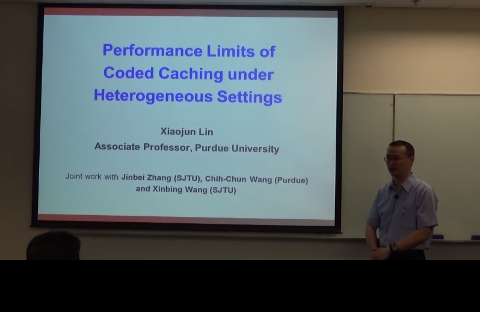
Caching plays an important role in reducing the backbone traffic when serving high-volume multimedia content. Recently, a new class of caching schemes, called coded caching, has received a significant amount of interest. Coded caching can exploit new multicast capabilities even when multiple users request different pieces of content, and thus can further reduce the backhaul requirement. While most of the prior studies of coded caching have focused on homogeneous settings, the performance limits of coded caching under heterogeneous system settings is much more involved. In this talk, we present two recent studies along this direction. In the first part of the talk, we study the setting where the files are of heterogeneous popularity, and we derive lower bound and achievable bound of the expected transmission rate of coded caching that are at most a constant factor away. Unlike other existing studies, the constant factor that we derived is independent of the popularity distribution. In the second part of the talk, we study the setting when the files are of heterogeneous sizes, and we derive lower bound and achievable bound of the worst-case transmission rate of coded caching that are at most a logarithmic factor away. These studies reveal new insights on how to use coded caching to effectively deal with heterogeneity. In both cases, the techniques for deriving the tighter lower bound may also be of independent interest.
Xiaojun Lin received his B.S. from Zhongshan University, Guangzhou, China, in 1994, and his M.S. and Ph.D. degrees from Purdue University, West Lafayette, Indiana, in 2000 and 2005, respectively. He is currently an Associate Professor of Electrical and Computer Engineering at Purdue University. Dr. Lin’s research interests are in the analysis, control and optimization of large and complex communication networks and cyber-physical systems. He received the IEEE INFOCOM 2008 best paper award and 2005 best paper of the year award from Journal of Communications and Networks. His paper was also one of two runner-up papers for the best-paper award at IEEE INFOCOM 2005. He received the NSF CAREER award in 2007. He is currently serving as an Area Editor for (Elsevier) Computer Networks journal and an Associate Editor for IEEE/ACM Transactions on Networking, and has served as a Guest Editor for (Elsevier) Ad Hoc Networks journal.
